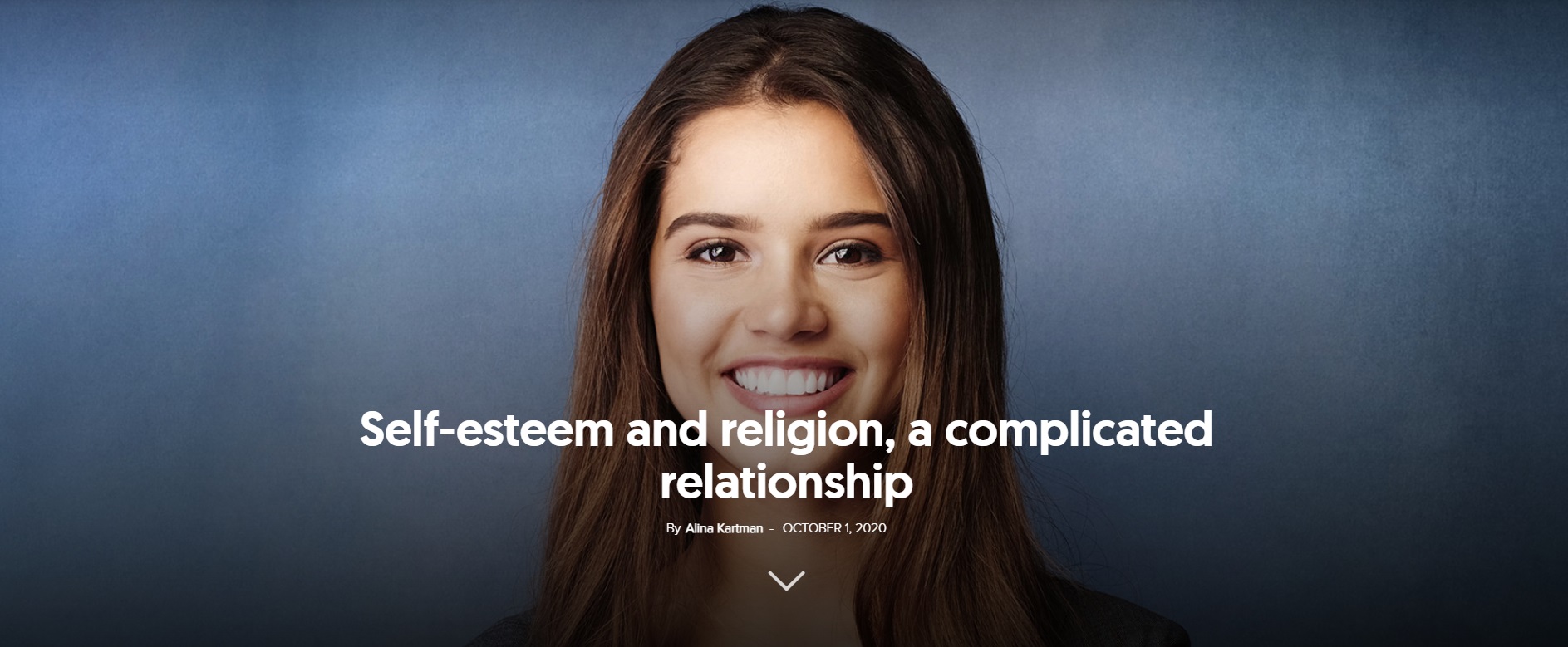A lack of self confidence is like a stain that doesn’t go away by itself. It is like oil dripping out of a machine, its drops collecting in the puddle of an inferiority complex. Such a problem is difficult to mitigate, even with motivational speeches or hopeful injections of fragile optimism.
It takes more than a simple exercise of the will to dismantle the belief that we are not good enough, strengthen our self-esteem, and dare to do things despite the imminent risk of failure.
The inferiority complex is universally known
The first to use the phrase “feeling of inferiority” as we use it today was Alfred Adler, the well-known Austrian physician and psychotherapist.
In Adler’s view, the feeling of inferiority—that is, the feeling of having lesser value (Minderwertigkeitsgefühl, German)—is the sentence that people pronounce in their own cases, following a disappointing comparison between themselves and others. It is a self-attributed value, which does not depend on objective factors, but on subjective interpretations. Hence, there is the possibility to model it through a continuous process of self-rediscovery.
In the book “The Courage to Be Disliked“, authors Ichiro Kishimi and Fumitake Koga show that, from Adler’s perspective, feelings of inferiority are universal. People are born helpless and embark on a fascinating journey in search of superiority, wanting to constantly reach new stages of development.
Children rejoice when they acquire the abilities that help them to adapt to the environment and bring them the appreciation of their parents. Teenagers congratulate themselves when they take steps towards achieving their much-desired independence. And adults feel alive when they overcome the challenges that have prevented them from settling.
Hope for the better vs. the belief that we are inferior to others
From this point of view, Kishimi and Koga consider that the feeling of inferiority, as a catalyst, and the search for superiority and improvement, as a commitment, are not diseases, but incentives for normal, healthy and developmental effort, representing the very essence of hope for the better. This, in their view, underlies the great achievements of society.
However, in certain situations, the feeling of inferiority does not propel us to the heights of self-transcendence, but keeps us in place. It’s like when someone says, “I’m not educated enough, so I can’t be successful” or “I’m not good looking, so I’ll never get married,” insisting on a self-defeating premise of “I’m in situation A, so B cannot be achieved.”
In such cases, the feeling of inferiority turns into an inferiority complex and becomes an excuse to preserve the routine of self-dissatisfaction.
Feelings of inferiority, inferiority complexes, and low self-esteem
The American Psychological Association defines an inferiority complex as an acute feeling of inadequacy and insecurity, which derives from a physical or psychological deficiency, either real or imagined; a harsh judgment manifested on oneself, strongly and long-term.
In their current lines of argument, theorists prefer to use “low self-esteem”, a popular phrase, suggesting people who underestimate their physical, emotional, intellectual, social and/or spiritual characteristics do not value their own ability/identity.
Low self-esteem is associated with a number of typical traits and behaviours. We say that someone doesn’t value themselves when they ignore their good qualities, focusing exclusively on their flaws; when they settle for less; when they give up easily because of lack of confidence in their own abilities; when they consider themselves insufficiently prepared for a better job; or insufficiently attractive for a desirable partner.
To a greater or lesser degree, everyone faces such fears, but not everyone manages them in the same way.
Where does the inferiority complex come from?
The way we perceive ourselves depends on certain genetic predispositions, but its foundations are in childhood. Parents and primary caregivers shape a child’s self-image by how they relate to the little one, towards whom they either adopt a permissive attitude, characterised by exaggerated praise, or formally express their expectations and the consequences of failure. Adults in the child’s immediate vicinity either encourage self-acceptance or, on the contrary, feed the conviction that they’re not good enough.
Constant criticism gives the child the illusion of intangible perfection and, as a result, the certainty of an insufficiency that is impossible to dismantle.
Childhood lived in the shadow of impossible standards often generates insecurity and an acute need to receive the approval of others, which leads to a life in which we follow the expectations of other people.
On the other hand, stereotypes based on criteria related to religion, ethnicity, age, nationality, gender, and so on also influence self-esteem. Studies show that women consider themselves less prepared and have less confidence in their ability to succeed professionally compared to men.
Symptoms of low self-esteem
In addition to the need for attention and validation, there are other “symptoms” of low self-esteem:
- increased sensitivity to criticism, but also to compliments
- a tendency to perfectionism
- frequent intrusive thoughts
- closing off because of feelings of shame, guilt or helplessness
- taking responsibility for the failure of other people
- isolation from friends, colleagues, and family
- avoiding any type of competition (and, implicitly, avoiding comparisons)
- lack of risk-taking
- managing personal failure by humiliating others
- adopting the victim role
- feigning superiority
In some cases, low self-esteem is associated with disorders such as anxiety or depression, which can last for years, or even a lifetime.
Freedom from the inferiority complex
“Feeling inferior from time to time is human nature,” according to Martin E. Ford, a professor at George Mason University in Virginia.
What happens when feelings of inferiority persist? When we suffer because of our own limitations, and suffering prevents us from seeking the superiority that Adler was talking about? When progress is suspended by self-criticism, by that inner inner voice that minimizes personal value and amputates any thought of change?
Unlike Freud, who saw people as being at the mercy of their own traumas, Adler believed that people are something more than the sum of their experiences: he considered them active agents of change, who give meaning and value to these experiences, rising above cause-effect determinism.
Therefore, in the psychotherapist’s view, overcoming an inferiority complex is a matter of exercising freedom.
If we are captive to a single way of looking at things, it will be difficult for us to replace poor thinking patterns.
If we perceive ourselves as ugly, mediocre, and weak, always inferior to others, we will constantly look for evidence to support our conceptions and we will behave as such, entering a vicious cycle which is difficult to counteract. We will become victims of an inner monologue based on an uninterrupted series of automatic thoughts that convince us that, despite all our efforts, we have, in fact, no chance at redemption.
Useful thinking
Our biggest challenge is changing the thoughts that flow routinely and unhelpfully through our minds and the cognitive patterns deeply rooted in the mentality of the dissatisfied. However, directing thoughts towards a positive vision can be achieved through introspection, detachment, and a consistent dose of courage.
From this point of view, Adlerian philosophy is a philosophy of courage and usefulness, because it urges us to use our experiences to our advantage, to stop irrational thoughts, and to defuse those cognitive modes that are self-defeating, such as:
“All or nothing” thinking
“All or nothing” thoughts are those that absolutize any dissatisfaction, any weakness, or any failure. For example, due to the fact that someone did not pass an exam, they might conclude that they’re a lost cause on all levels.
The mental filter
The mental filter involves the interpretation of a certain situation from a purely negative perspective. For example, someone who has not met their sales target will be afraid that everyone will categorize them as useless.
The overthrow of values
The overthrow of values refers to the transformation of positive outcomes into negative conclusions. For example, the employee with an excellent evaluation will tend to say that their success is due to the relative incompetence of their colleagues.
Jumping to negative conclusions first
Hasty conclusions refer to the formation of negative opinions based on exaggerated interpretations, taken out of context.
For example, because they were not greeted on one occasion, someone who lacks self-confidence may conclude that the person who failed to greet them hates or despises them. This issue is exacerbated by labelling feelings as objective facts. For example, if I feel inappropriate/inadequate, it means that everyone thinks the same about me.
The courage to be disliked
In his book, Solve for Happy, author Mo Gawdat says:
“Trying constantly to get approval for your chosen image is a losing battle because the real you isn’t what the ego pretends to be. This makes us unhappy since we’re always searching for the next thing to make the image complete in the hope that people will believe that’s who we are. This will never work for two reasons. First, others will rarely ever approve of your ego because they are more concerned with their own ego than with yours. The survival of their ego depends on comparing it with yours. For them to be right you should be seen as wrong; when you’re less, they become more.”
Without seeking to provide a perfect recipe for solving an inferiority complex, the authors of the book The Courage to be Disliked cite three obstacles that compromise self-acceptance:
- a constant desire for people’s approval
- a life lived for others
- conventional thinking
Referring to the last obstacle, the authors present the legend of Alexander the Great who, wishing to fulfil the prophecy that whoever succeeds in undoing the Gordian Knot will become the master of Asia, resorted to an unexpected method of freeing the coveted chariot the knot was tied to. This chariot was an ornate symbol of power and royalty.
Seeing how tight and complicated the knot was, Alexander the Great drew his sword and split it abruptly with a single blow, insisting that it didn’t matter how the ropes were untied.
This story is often used to illustrate the power of unconventional thinking that gives us the ability to solve a seemingly impossible problem by overcoming the tried-and-tested methods already established.
The desire for people’s approval and a life lived for others prevent us from truly knowing ourselves, accepting our imperfections and working for self-improvement. That is why, the authors say, the complicated knots—the chains in our relationships that cannot be untied using conventional methods—need to be untied with a whole new approach.
We need to find an approach that helps us understand that we are more than what others think of us. Sometimes, we are even more than what we think of ourselves. We shouldn’t treat these beliefs as absolute, definitive and irreversible truths. Especially when we want to overcome our insecurities, and do it in an authentic way, not by activating the self-deception setting.
It’s important to feel accepted, and we can achieve this without masks worn in exchange for validation, without artificial adjustments to convince the audiences in our lives that we fit the desired parameters; and without fooling ourselves.
In order to fight an inferiority complex, we need, first of all, to be honest—no matter how much it costs us.
Genia Ruscu has a master’s degree in counselling in the field of social work.















